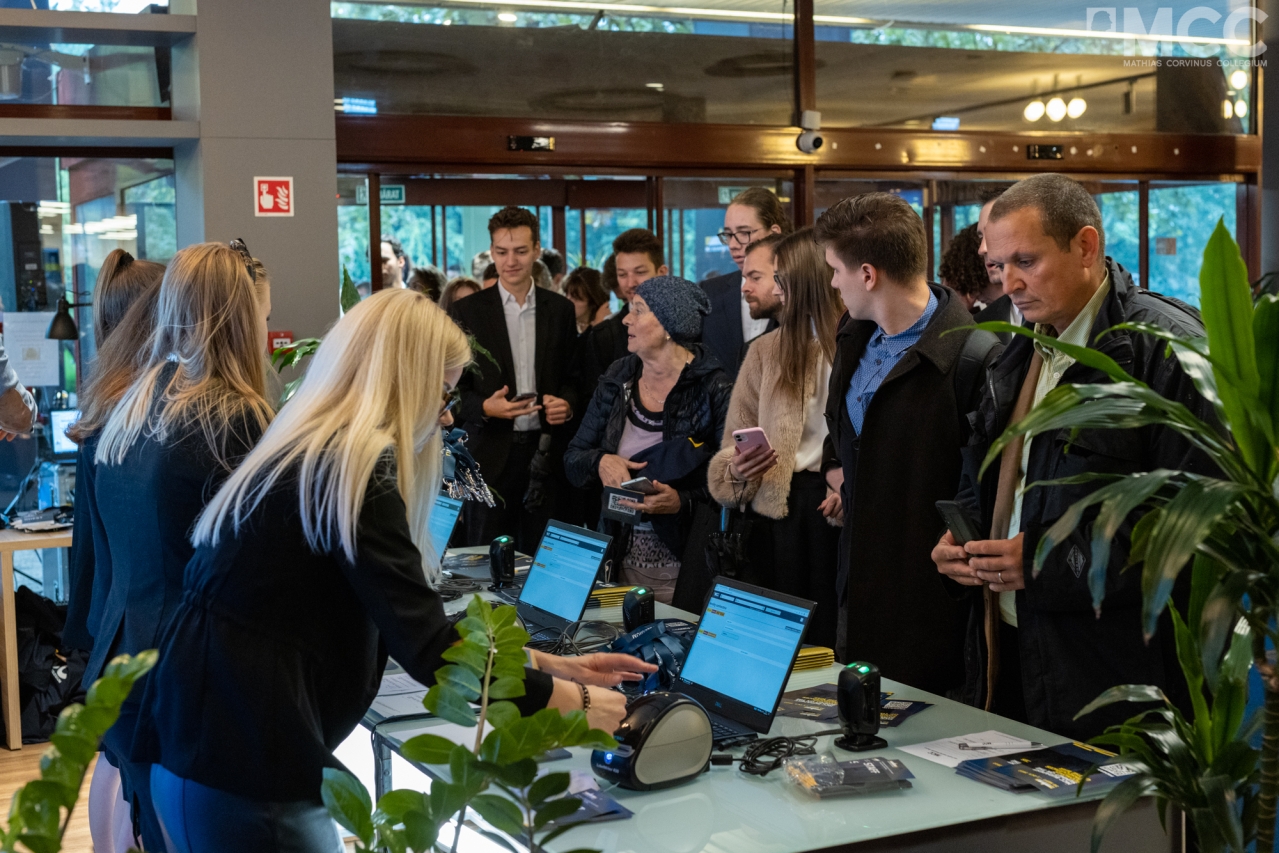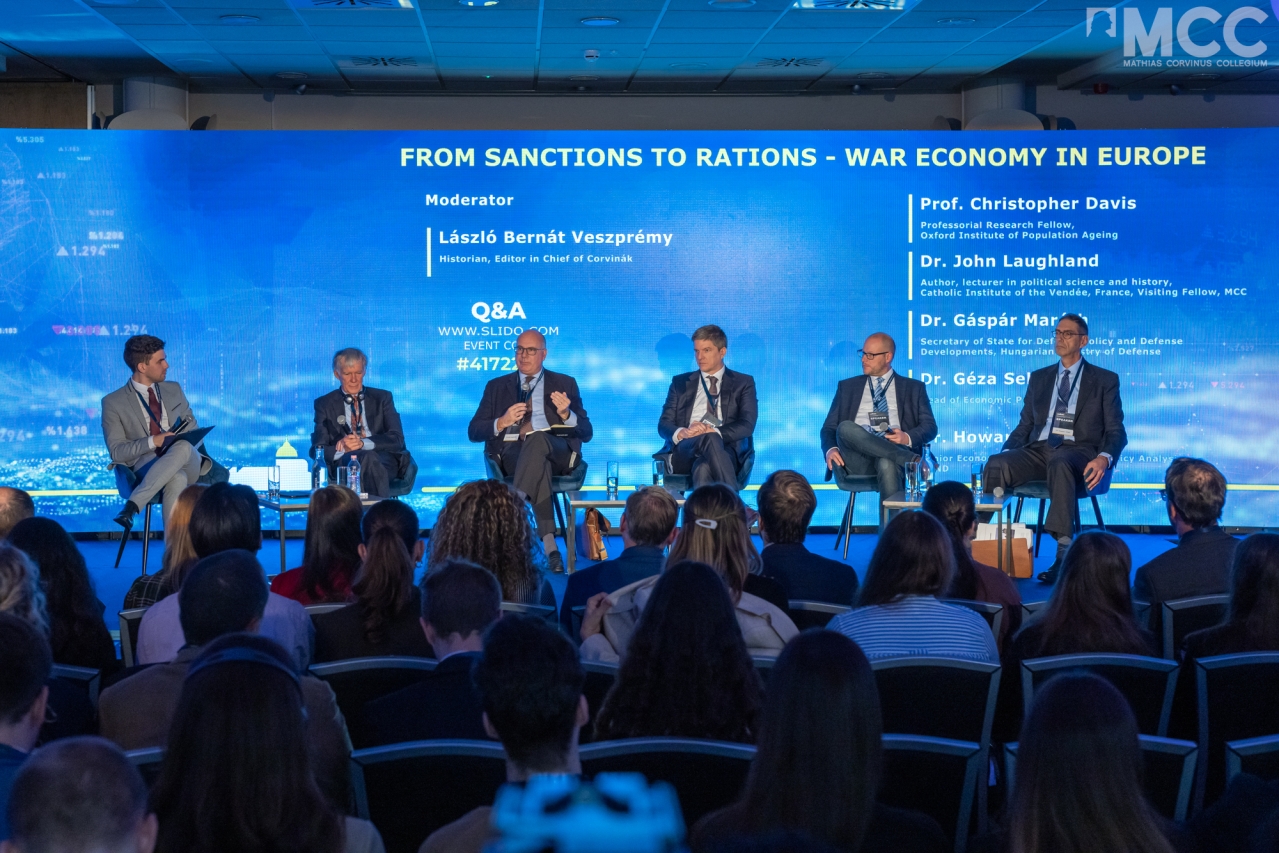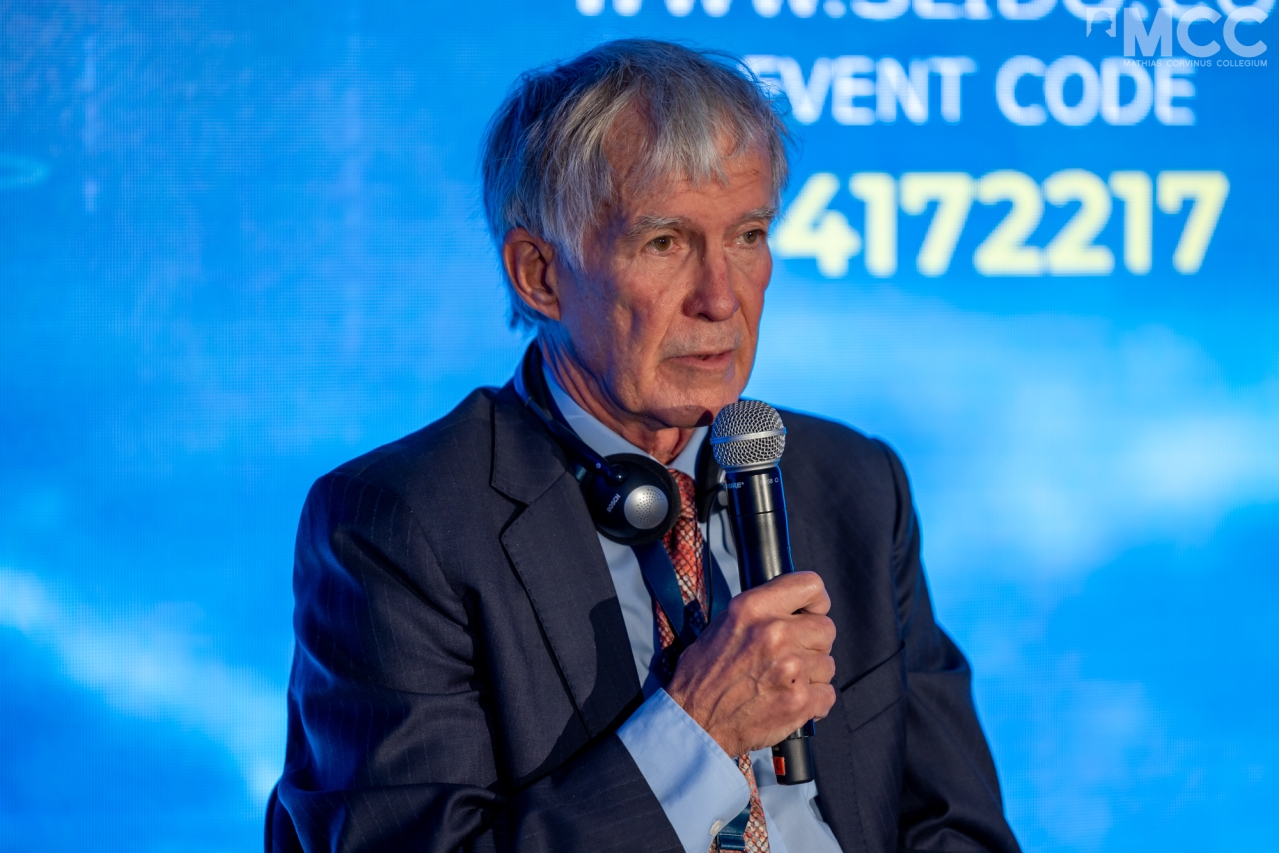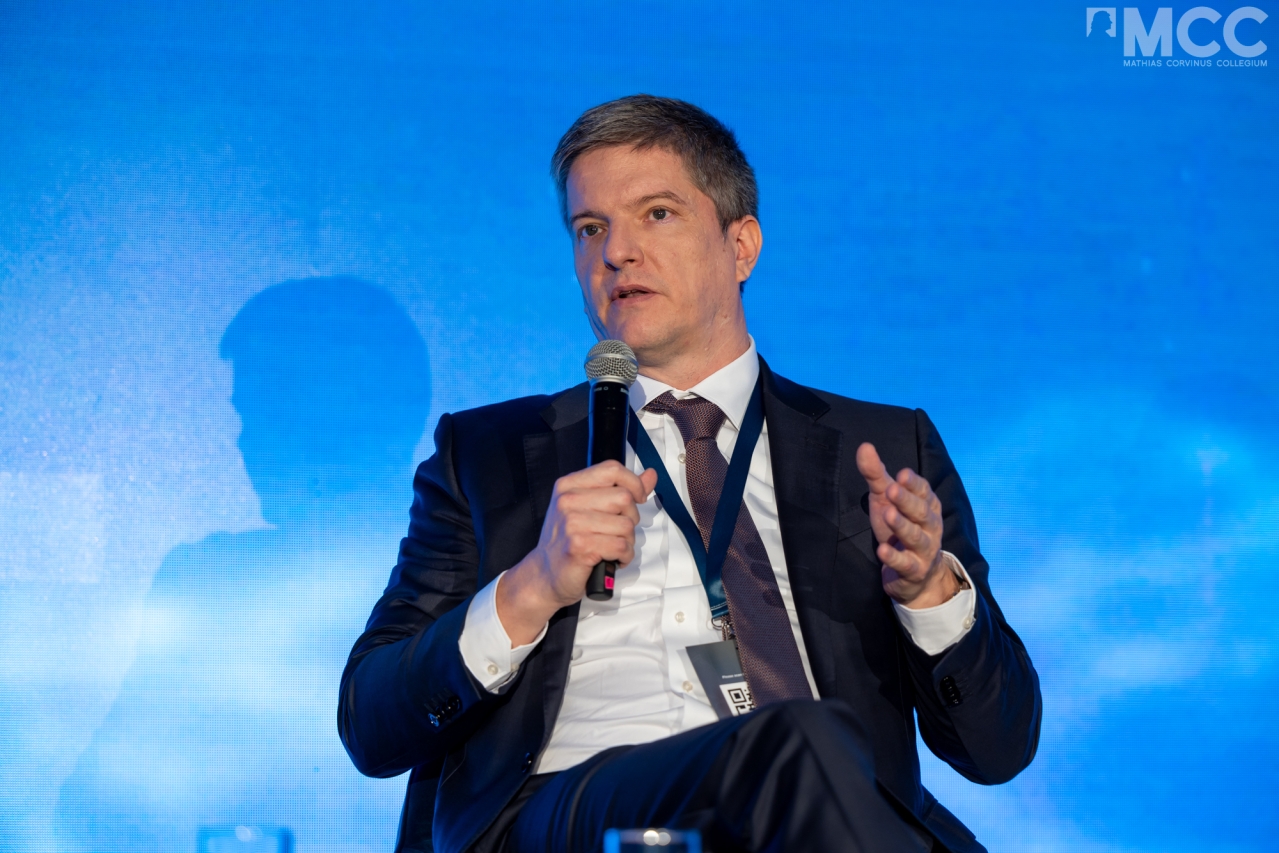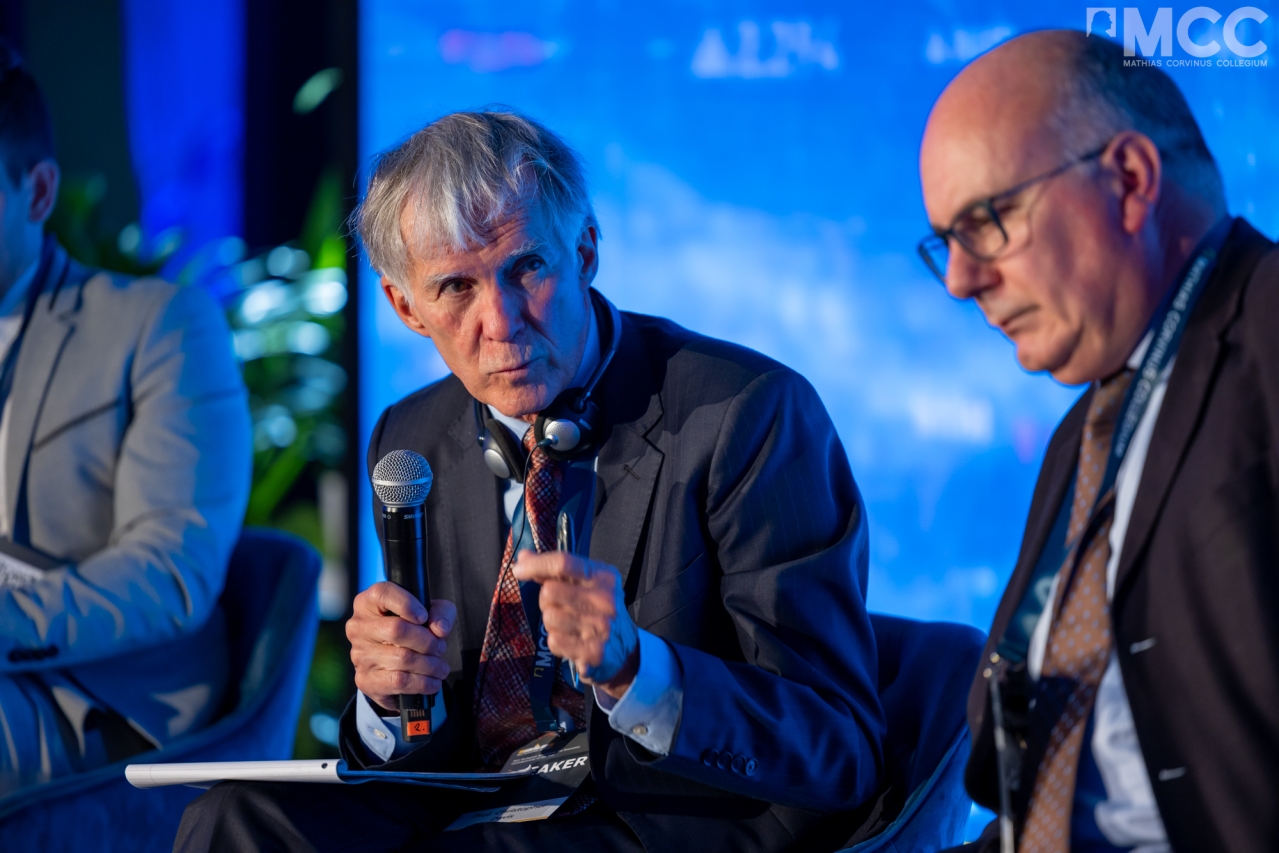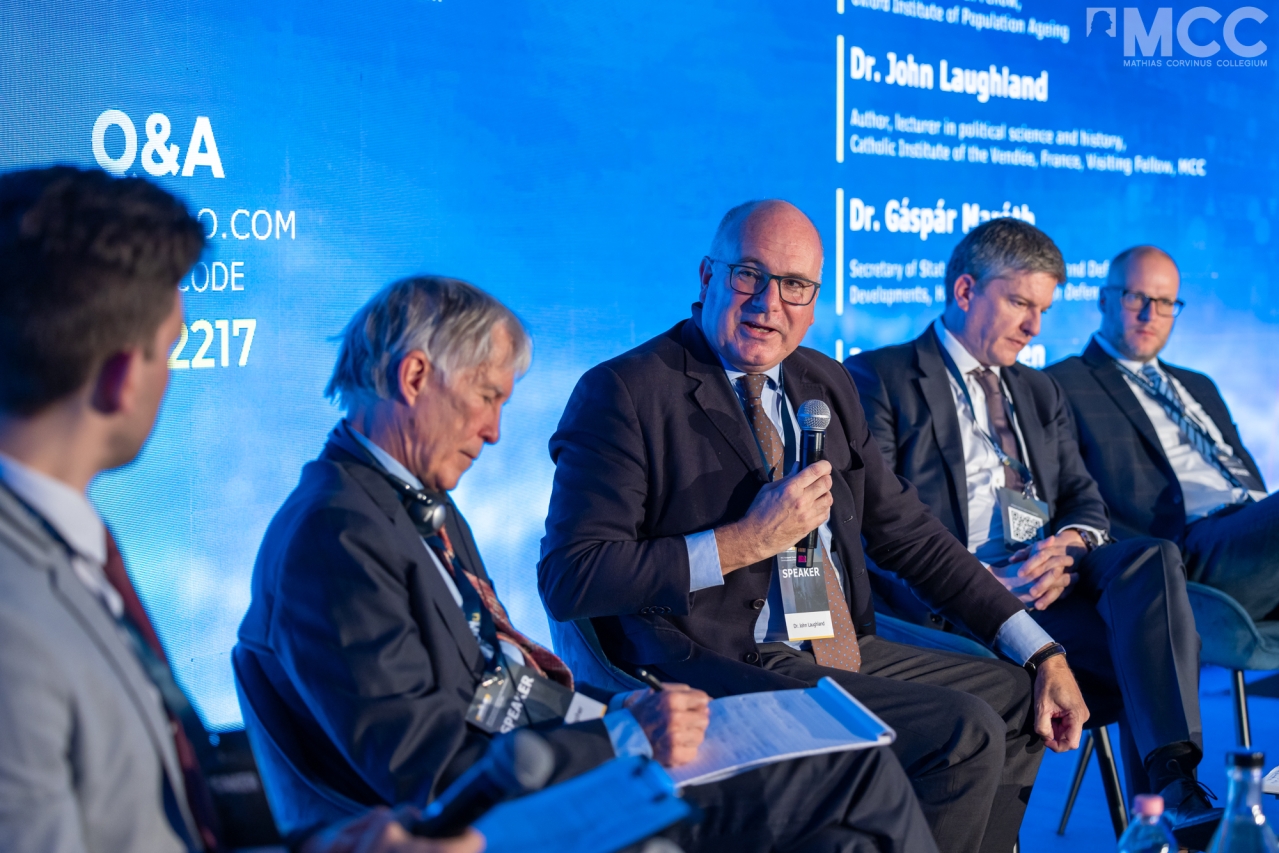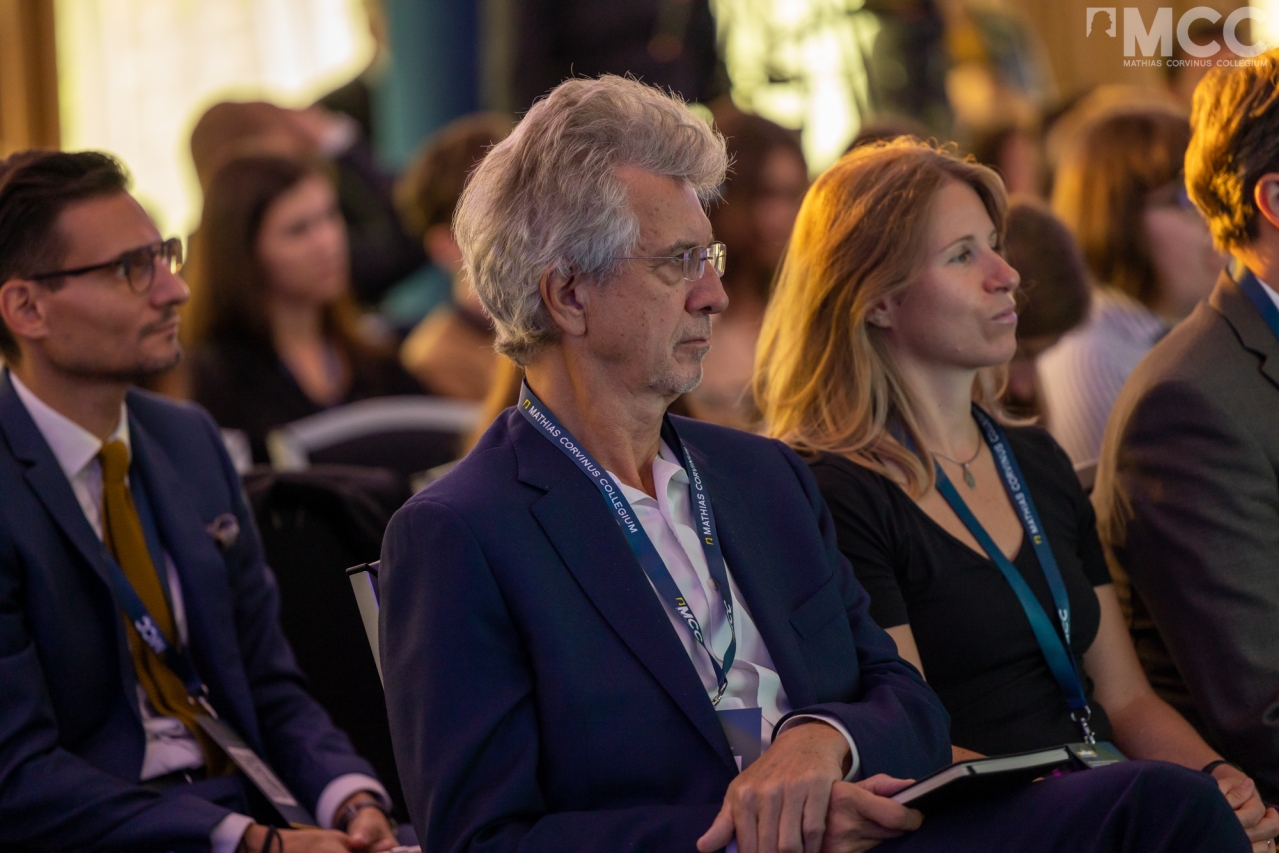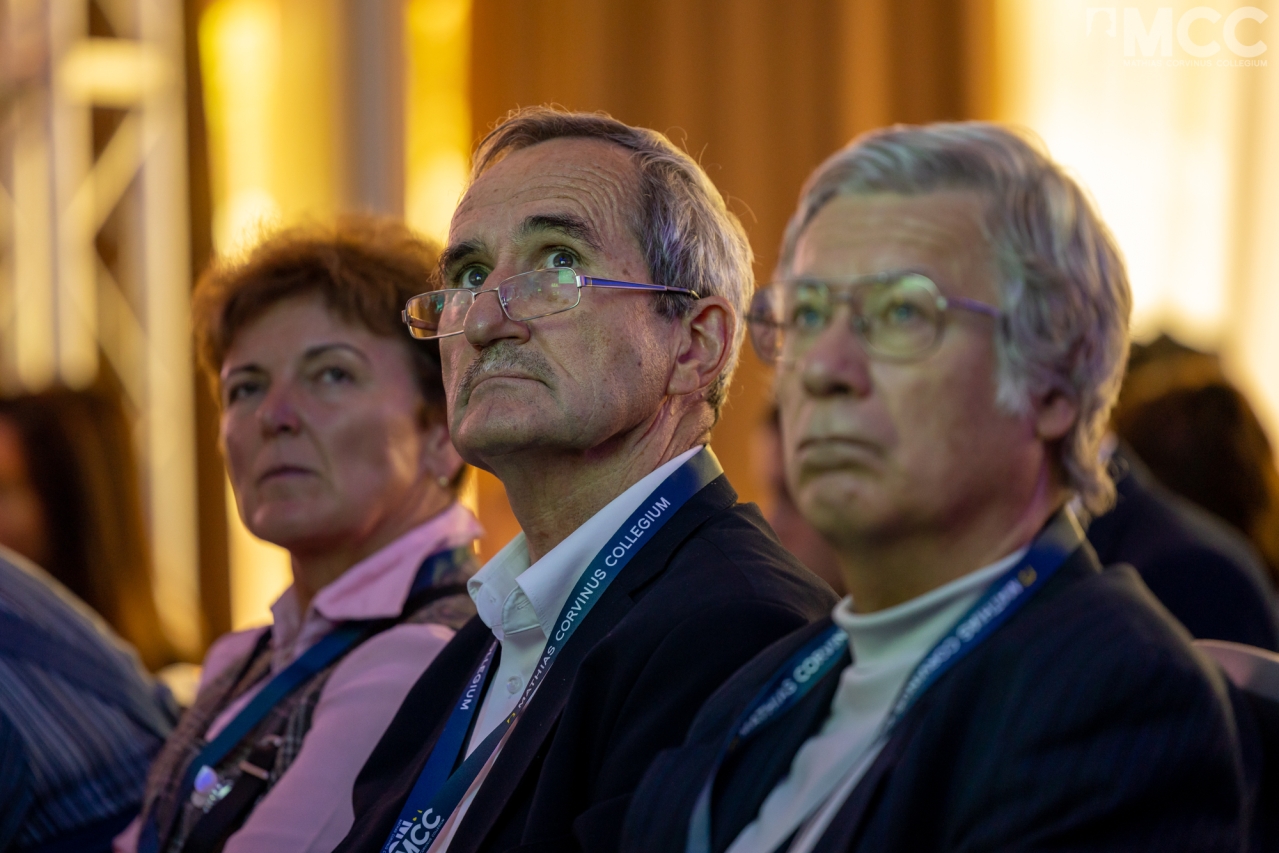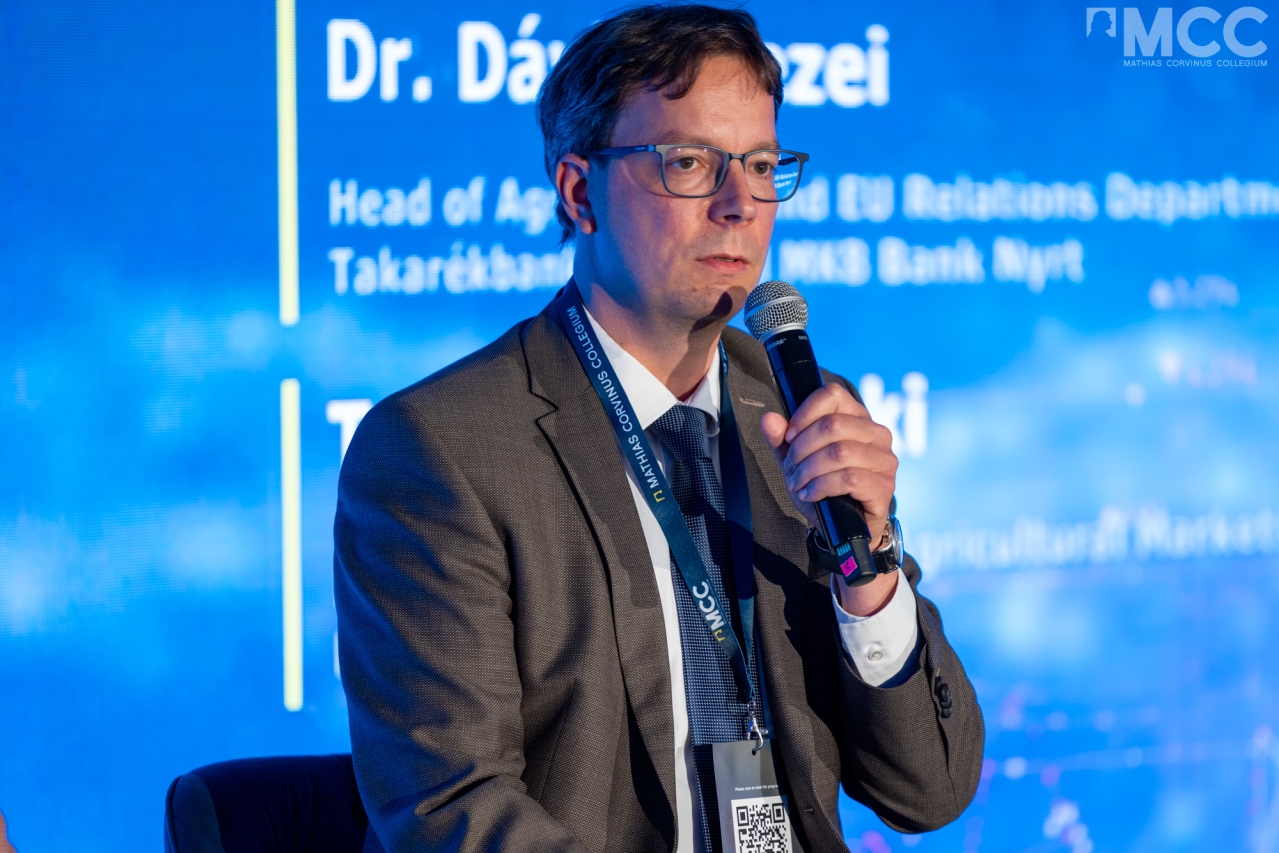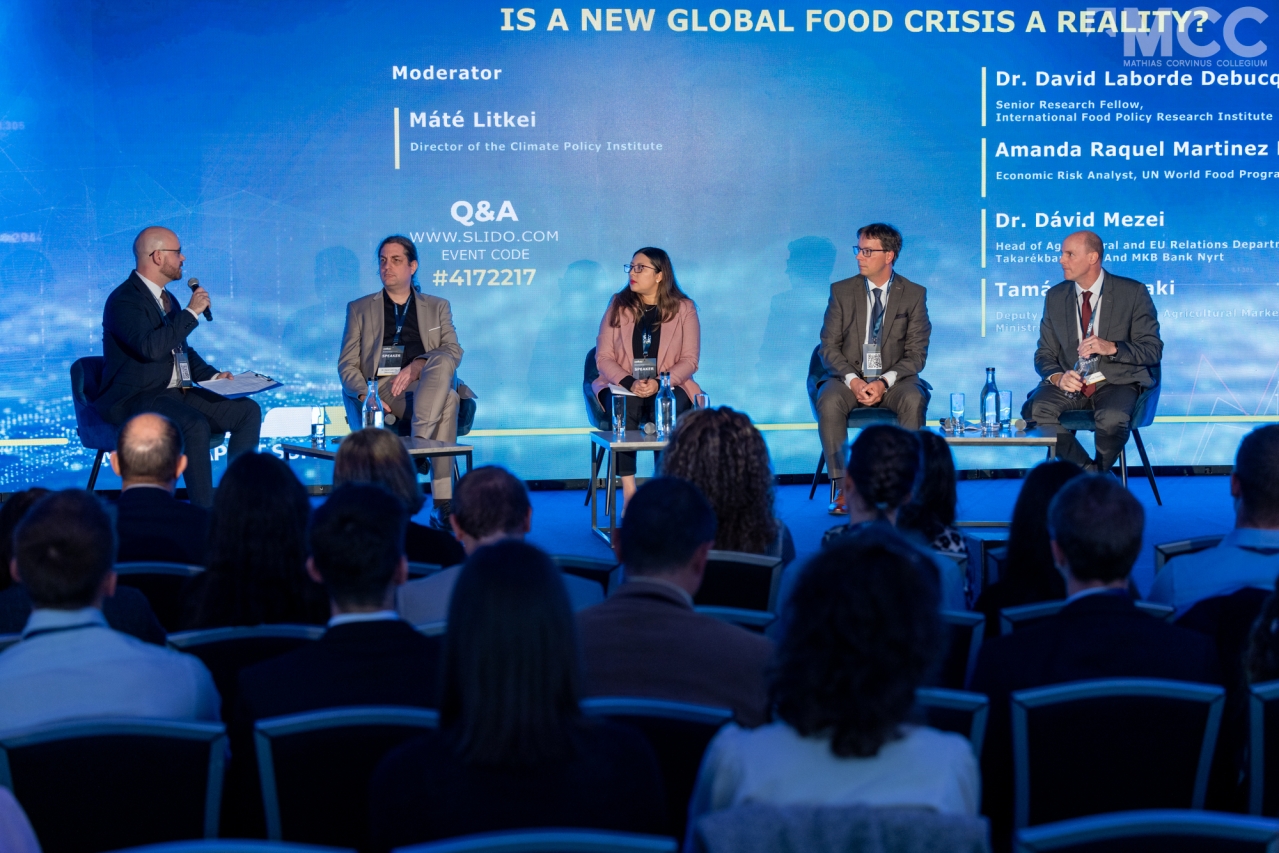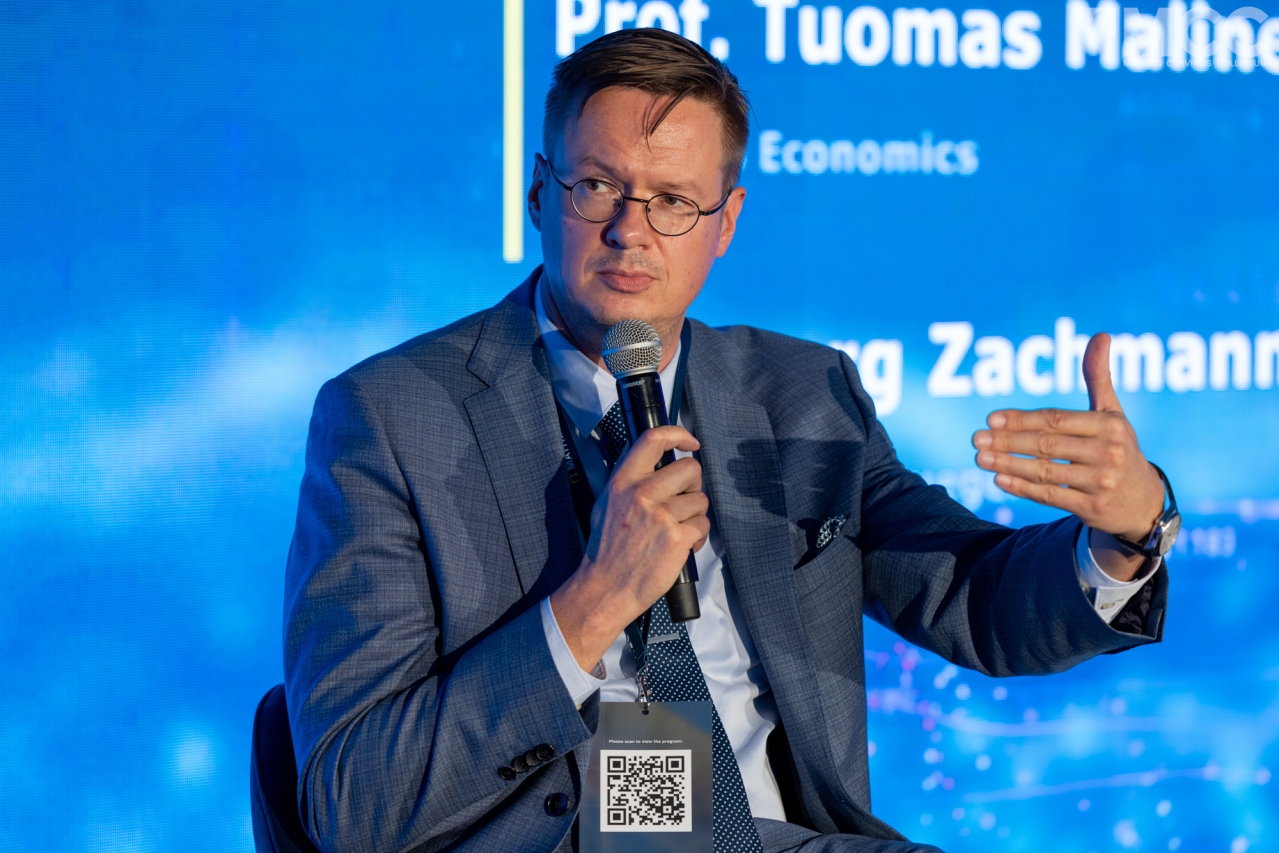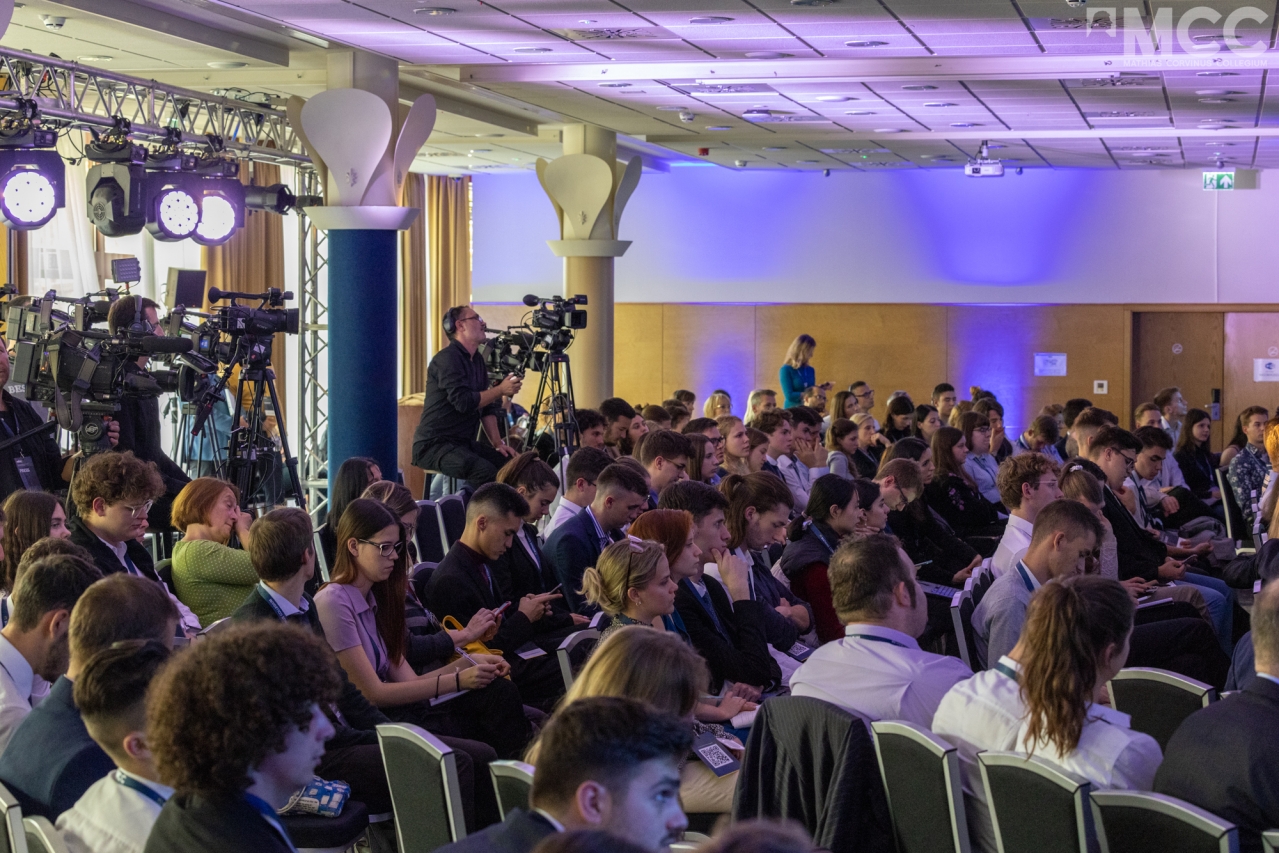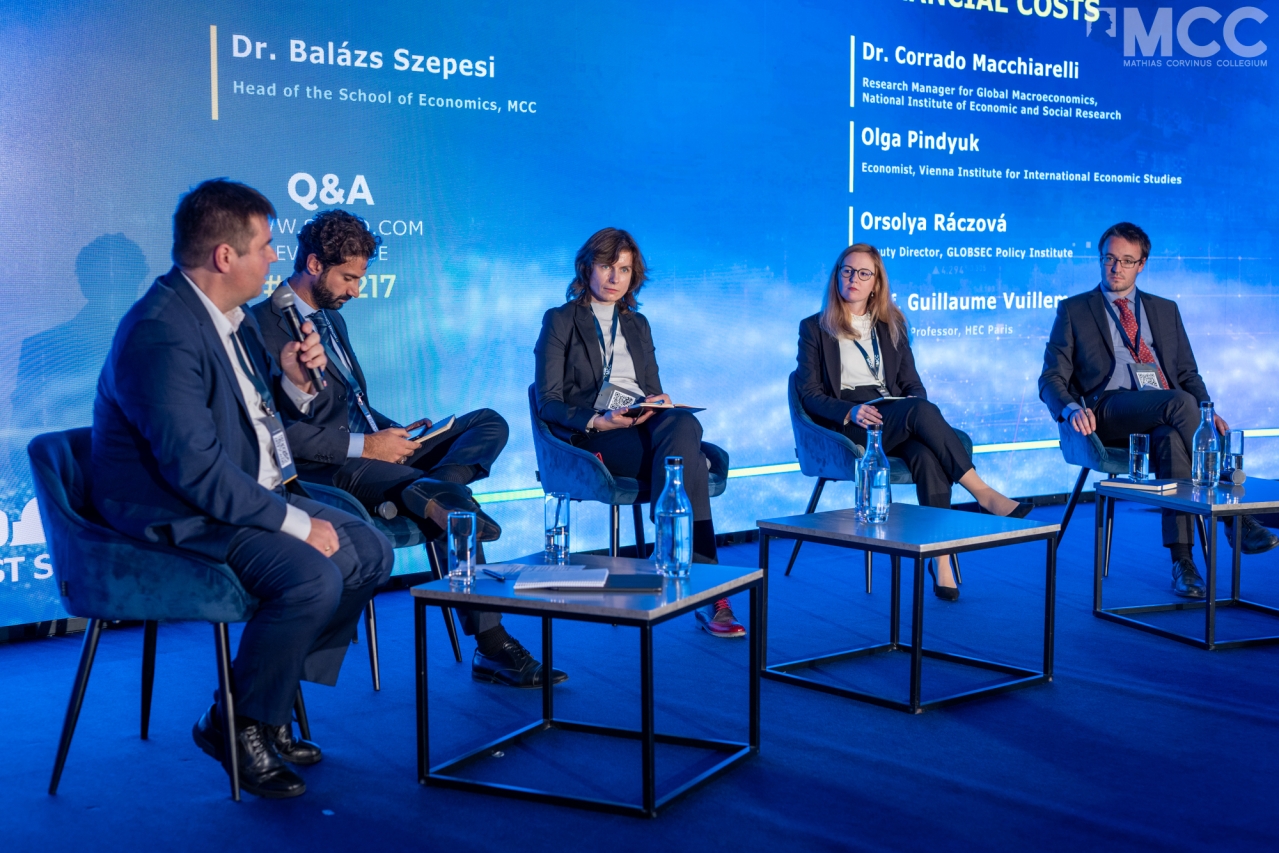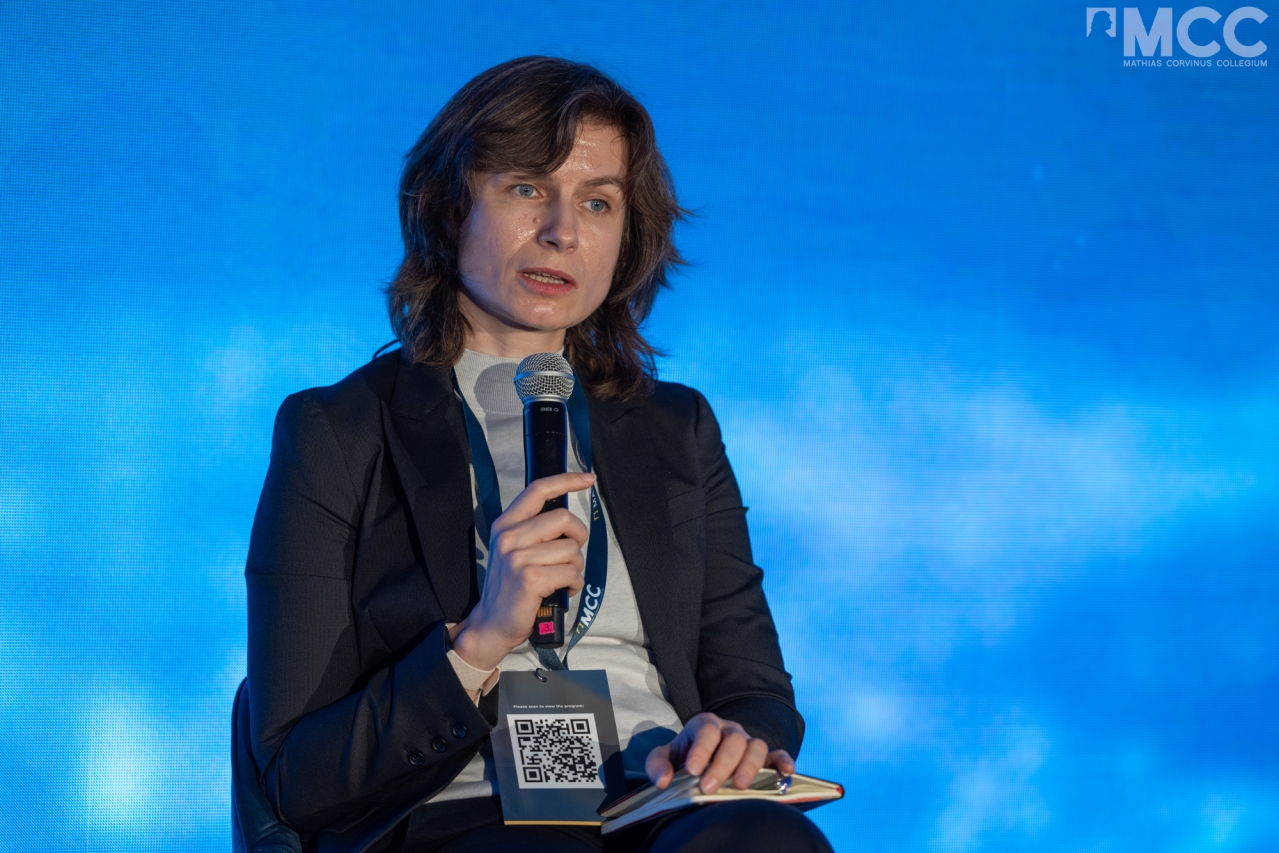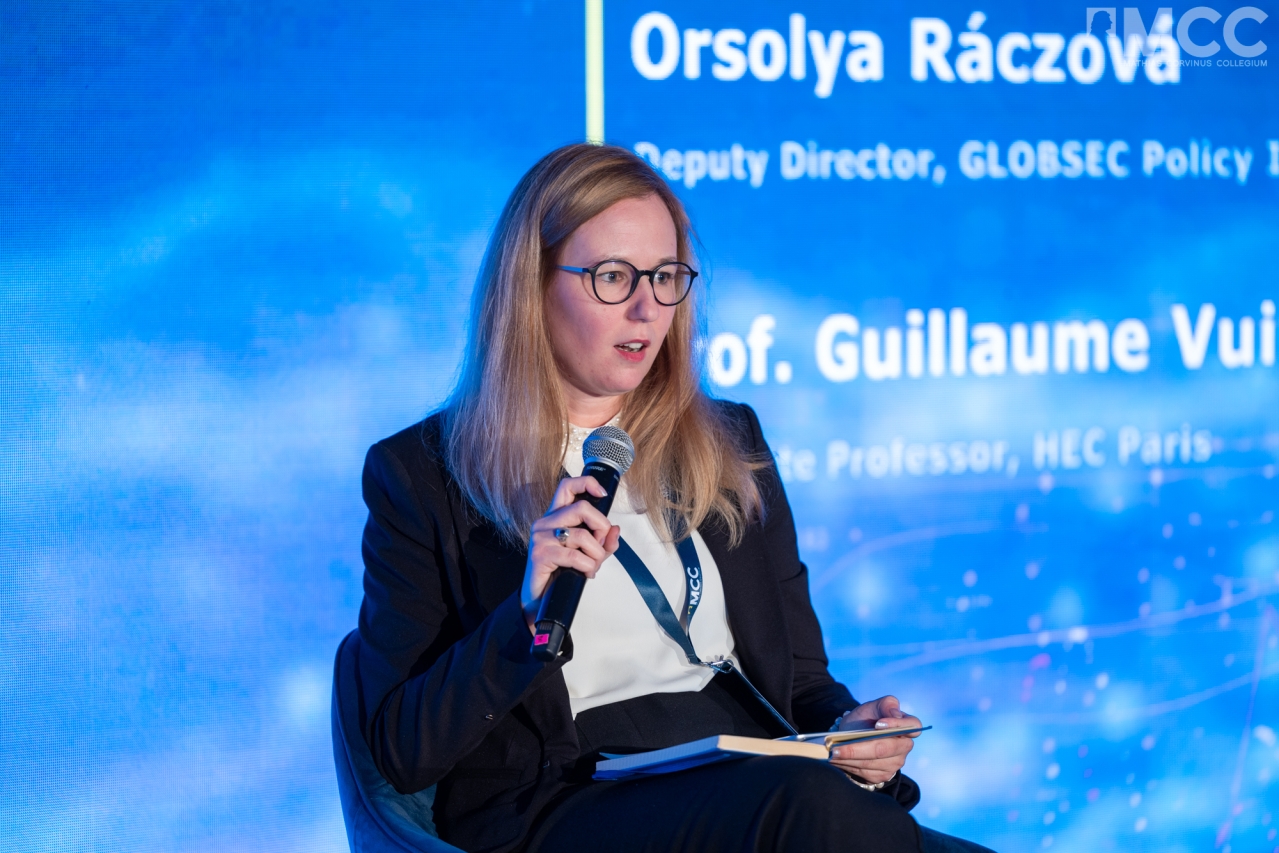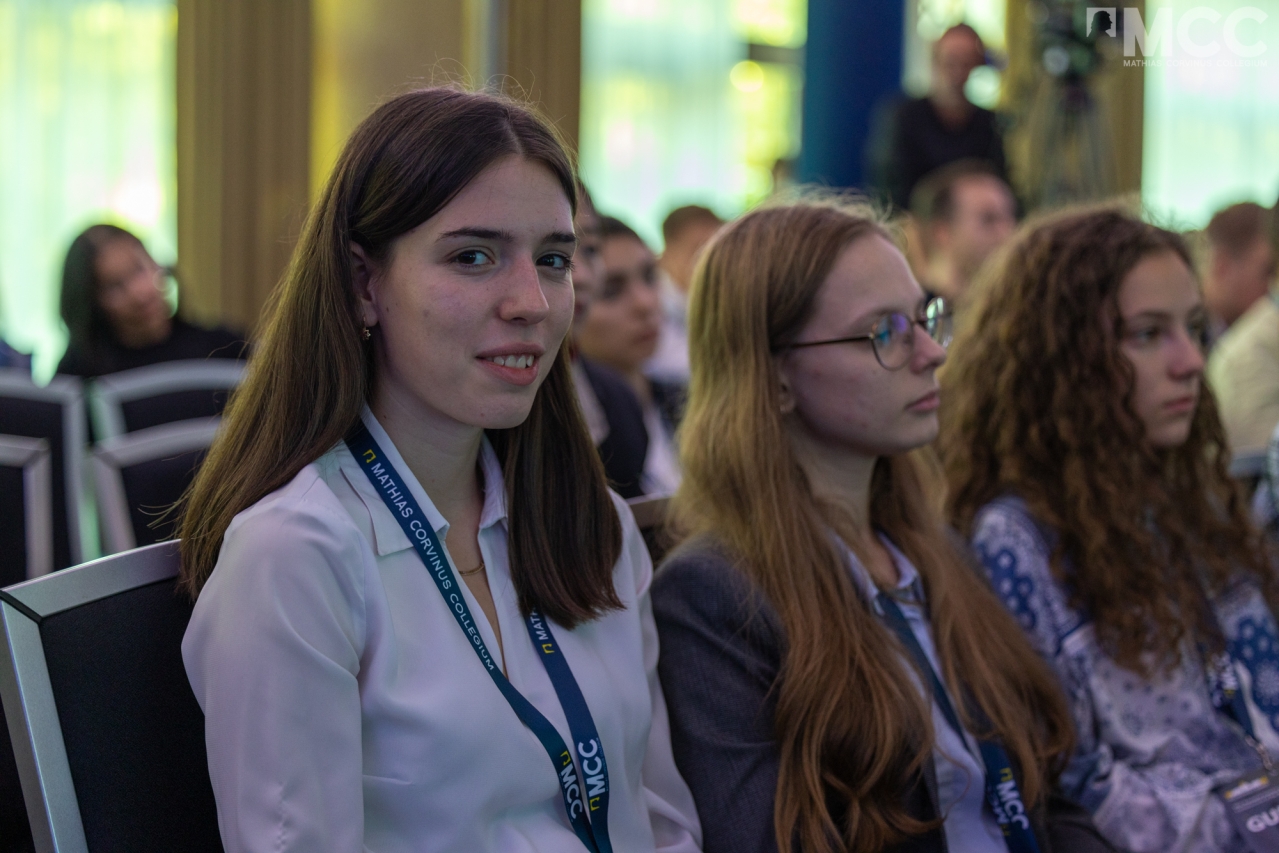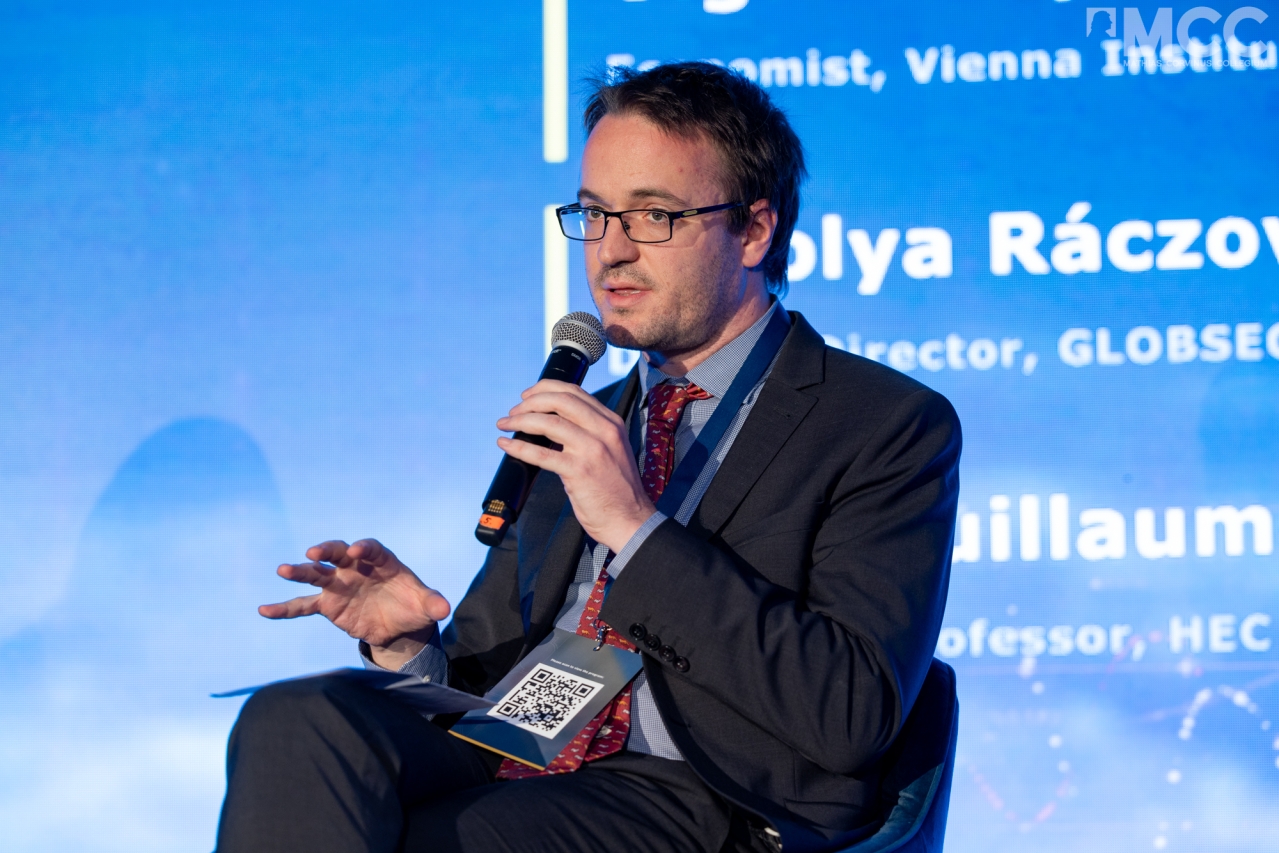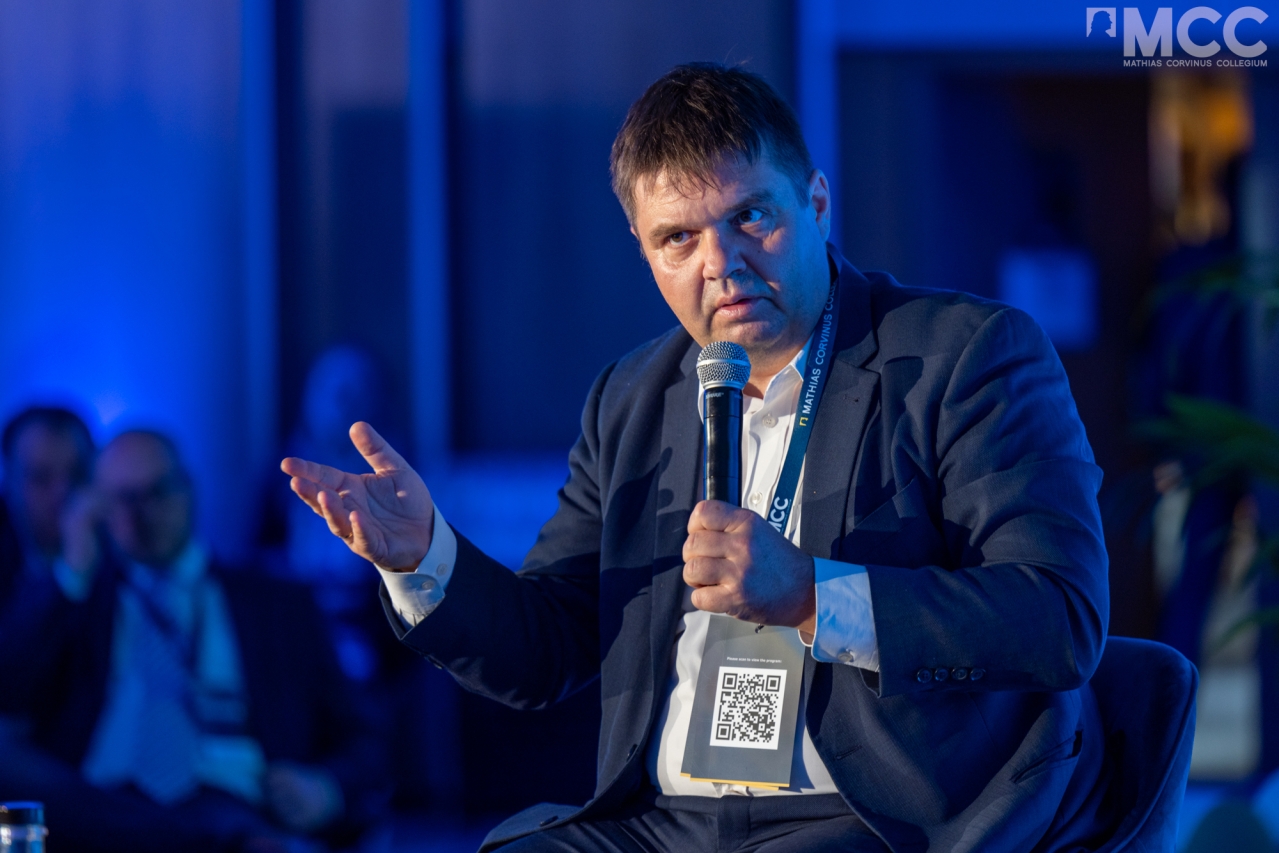Reading time: 10 minutes
Several Hungarian and 20 foreign experts sought answers to today's most pressing economic problems at the MCC Budapest Summit international conference on Friday. The economic impact of the war was discussed by the participants, who came to the Mathias Corvinus Collegium from 10 different countries. The event attracted nearly 600 attendees.
In his welcome speech, the MCC Director General said that this time it was history that decided the theme of the fall MCC Budapest Summit, a topic that affects the lives of all of us. Zoltán Szalai highlighted that the price of war is paid not only by the belligerents but, in a globalized world, we all bear the burden. At the same time, we must find ways to move towards peace instead of weapons.
Europe is steadily losing economic ground to the United States and China, and the energy crisis is "sending" its already "drastically poor" competitiveness "to the ground", said Minister for Economic Development Márton Nagy in his opening speech. Analyzing the situation in Hungary and outlining the government's plans, he said the country needed to move away from a labor-efficient economy towards an energy-efficient one.
History Shows That Only a Fraction of Sanctions Worked
What is the relationship between the war and sanctions, do sanctions work? This was the topic of the first panel discussion at the MCC Budapest Summit
Participants of the panel discussion included Gáspár Maróth, state secretary for defense policy and defense development at the Ministry of Defence, Christopher Davis, a research fellow at the Oxford Institute of Population Ageing, Howard J. Shatz, senior economist at the RAND Corporation, John Laughland, lecturer in Political Science and History, MCC visiting fellow and Géza Sebestyén, leader of the MCC Center for Economic Policy. The moderator was László Bernát Veszprémy, historian, editor-in-chief of Corvinas, and a contributor to Mandiner
Laughland explained that even after the First World War, the logic of the peace treaty was to punish those responsible for the war. The guiding principle behind the current sanctions is also punishment. The problem with this is that you can only punish someone you have captured, for example, a prisoner. We have no power over Russia. When they talk about sanctions not working, they are referring to the fact that energy has not even been sanctioned. America has instructed Germany not to accept gas via the Nord Stream pipeline.
Davis has long researched the effects of sanctions, for example against the Soviet Union. When looking at sanctions, one has to look not only at the impact on the target country, but also at the consequences for those who impose the sanctions and the impact on the rest of the world. Economic experts have been carrying out impact studies on different business actions for decades but these have obviously not been carried out by the EU this time. The Western world is now saying no to Russian gas and buying liquefied natural gas instead. This, in turn, takes the LNG supplies away from the Third World, where there will be gas shortages. In Afghanistan and the Third World, winters are often cold, and now there will be no heating.
According to Shatz, sanctions sometimes work, usually when a large state sanctions a smaller state. In history, when the Netherlands sanctioned the independent Indonesia, it did not work. Sanctions against 'rogue states' sometimes work. Sanctions have forced North Korea back to the negotiating table, even though they have nuclear weapons. Iran can be cited as another example. So sanctions present a complex picture, they do not always work.
According to State Secretary Maróth, economic war is a very powerful tool. There is media war, cyber war, and many "soft tools" for hybrid actions. The question is not whether sanctions can be successful, but whether the result of sanctions is really to prepare the battlefield in case the war is actually waged. The introduction of sanctions is a prelude to war. The aim of economic war would be to weaken the opponent. But the truth is that, for the time being, it is we who are weakened by sanctions.
Géza Sebestyén pointed out that in history, sanctions have worked in only a fraction of the cases. Although Sanctions reduce Russia's exports and it has less revenue, but Russia can print rubles while we cannot print oil, he noted.
Responding to Veszprémy's question on the importance of the rest of the world joining the sanctions, Davis said that everything depends on this question. In the Cold War era, Western countries that supported anti-socialist economic warfare controlled about 80% of the global GDP. By 2022, the countries responsible for anti-Russia economic warfare account for about 40% of the global GDP and about 25% of the world's population. Those who do not support the new economic war generate a larger part of the GDP and control 75% of the world's population. This situation undermines the effectiveness of economic warfare against Russia.
Food Crisis? - Peace Can Bring a Tangible Improvement
The panel discussion entitled "Is the new global food crisis real?" at the MCC Budapest Summit, moderated by Máté Litkei, director of the Climate Policy Institute, was not without heated debate. Participants of the discussion were Amanda Martinez, economic risk analyst at the UN World Food Programme, Dr David Laborde Debucquet, senior research fellow at the International Food Policy Research Institute (IFPRI), Dr Dávid Mezei, director for Agricultural and EU Affairs at Takarékbank Zrt, Hungarian Bankholding Group, and Tamás Tarpataki, deputy state secretary for agricultural markets at the Ministry of Agriculture.
All panelists agreed that there is no or only a sporadic food crisis, with the biggest problem being not necessarily the quantity of food available, but rather access to food and the adequate nutritional value of food. Amanda Martinez pointed out that food production and nutrition problems, be it availability or adequate nutritional value, are present in many countries around the world. Climate change is one of the causes, but the war and its consequences have exacerbated the situation.
The Russian-Ukrainian war, with the disappearance of the former Black Sea transport route, has necessitated new, but more expensive and more complicated transport methods and routes, and the reliability and quality of Ukrainian export goods have deteriorated, Tamás Tarpataki said.
David Laborde Debucquet said that we are dealing with a perfect storm: climate shock combined with bad policy decisions and the consequences of war. The senior researcher of IFPRI also added that the fact that several countries are restricting grain exports is a problem. Deputy State Secretary Tamás Tarpataki pointed out that the aim is to ensure food security and to keep Hungary's interests in mind by assessing the volume of exports and preparing for the crisis situation resulting from the war.
Dávid Mezei, director for agricultural and EU affairs at Takarékbank Zrt., Hungarian Bankholding Group, noted that Russia is "the biggest player" in the grain market today. In 2000, Russia accounted for 2% of global wheat exports, today it accounts for 19%, he added. He stressed that because of the war, Russia cannot be considered a reliable supplier.
What all participants agreed on was that securing and reopening the Black Sea transport route is in everyone's interest and that a possible Russian-Ukrainian peace or ceasefire could bring immediate and tangible improvements in agricultural production, food supply and prices.
Rising Energy Prices: Peace Would Be a Quick And Effective Solution to the Current Situation
Europe has made a huge mistake, said Dr Tuomas Malinen, CEO of GnS Economics, during the first afternoon-session of the MCC Budapest Summit on Friday, where experts shared their thoughts on the rise in gas and electricity prices in Europe. According to Malinen, there is a question mark over whether Russia has an interest in restoring gas supplies to Europe after the war - an issue on which, unfortunately, we are losing, he said.
Dr Zoltán Ács, economist, professor at the London School of Economics and visiting fellow at the MCC, agreed with an important thesis expressed earlier in the conference, namely that inflation in Europe is driven by dramatically rising energy prices. The US has successfully fended off this economic problem, after all, it was an energy-independent country before the Biden administration, he said, while Europe is typically an energy importer, facing energy shortages as a result of sanctions on Russia. This has led to the current drastic price rises, the outcome of which is still open, he added.
Dr György Bacsa, managing director of strategic operations and corporate development at MOL Group and Dr. Georg Zachmann, a senior fellow at Bruegel, also agreed with Zoltán Ács. György Bacsa pointed out that the security of energy and fuel supply for residential and business customers is a key concern, which must be kept in mind despite all the difficulties.
Dr Georg Zachmann believes that there are three main problems that have led to soaring energy prices. Firstly, given the lack of sufficient and adequate investment globally in the past, the problem of energy supply has rapidly become widespread. Secondly, Europe can produce 10% less electricity than it needs and thirdly, Gazprom supplied 40% of the continent's gas - all of which led directly to high prices.
The experts agreed that energy prices will recover sooner or later after the war - if not on their own, then through the influence of economists on the market. It is important, however, that we find independent, sustainable, and affordable ways to manage our energy supply - but a quick and effective solution to the current situation would be peace.
Economic Impacts: Human and Financial Costs
The Russia-Ukraine war has simultaneously sent inflation soaring and disrupted global economic growth. What are the economic costs of the war? What are the main risks for the future? - These are the questions that the final panel discussion on Friday sought to answer at the MCC Budapest Summit.
A few years ago, the most renowned economic analysts could not have imagined that double-digit inflation would hit Europe in such a short time," said Dr Corrado Macchiarelli. The Research Manager at the Italian National Institute of Economic and Social Research said that it was clear that prices had been unleashed as a result of the war and sanctions.
The transformation of Europe’s economic structure over the last 25 years has made it particularly vulnerable to inflation," added Guillaume Vuillemey associate professor at HEC Paris. He also pointed out that there is no significant price increase for goods and services that can be produced and provided by the nation states themselves. Where countries have outsourced the production of goods and the extraction of energy resources and raw materials to other countries, we are now seeing a price explosion of over 50% in the months of the war.
In addition to analyzing macroeconomic indicators, it is also worth looking at the impact of war and economic problems on households, especially in the case of European countries with a more modest economic level, said the economist Olga Pindyuk. According to the researcher of the Vienna Institute for International Economic Studies governments and policymakers in each country face the challenge of how to compensate to some extent for these effects.
It is worth considering that industries that have already suffered from the coronavirus epidemic are now facing further challenges as a result of the war and its negative economic impact, with profound human and financial costs," explained Orsolya Ráczová. The Deputy Director of the GLOBSEC Policy Institute gave the automotive industry, tourism and also HORECA as examples.
The panelists agreed that war can potentially transform not only Europe's economy but also our daily lives in the long term. Energy efficiency may be of paramount importance, but people's consumption habits will also be transformed.
The MCC Budapest Summit program continued on Saturday with exciting debates.
Watch the panels of the conference here!


